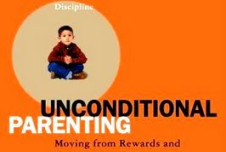When spouses become parents, they can expect challenges beyond dirty diapers and sleepless nights. In a study that followed 130 couples from the time they married until their first babies turned three, researchers John and Julie Gottman found that 67 percent of the couples experienced more conflict, less intimacy, and higher levels of depression after becoming parents. All of these factors contribute to a higher divorce rate and can have a negative impact on children.
Alarmed, the Gottmans developed a two-day workshop for new parents dubbed “Bringing Baby Home” (BBH), which teaches these parents how to manage confl ict, build intimacy, and read their babies’ social-emotional cues. “We really focused on giving couples concrete tools that cover all aspects of a relationship,” says Carolyn Pirak, director of the BBH Program.
Pirak was part of a team that recently evaluated the BBH over four years. Compared to a control group, couples attending the BBH workshop experienced higher relationship satisfaction and stability, significantly less hostility toward their spouses, more participation by husbands in child rearing, and lower rates of post-partum depression (22.5 percent compared to 66.5 percent). Their babies also benefited, dealing better with frustration and showing fewer language delays.
Pirak says an important part of the workshop is helping parents, particularly fathers, better understand their babies’ needs. For example, she and her colleagues developed a special deck of cards: On one side of each card was a child care activity; on the other was an explanation of the research into why that activity is valuable to a baby’s development. The dads used the cards to pick tasks they wanted to commit to doing, which gave them a sense of control while helping moms feel they were sharing the responsibilities of child care.
The Gottman Institute is now training educators around the globe to deliver the workshop to new parents, and John and Julie Gottman recently published a book, And Baby Makes Three, that offers parents tips for preserving their relationship after having children.
“It’s the small changes—like working out responsibilities and learning how to express gratitude and appreciation—that really make a relationship work,” says Pirak.






Comments